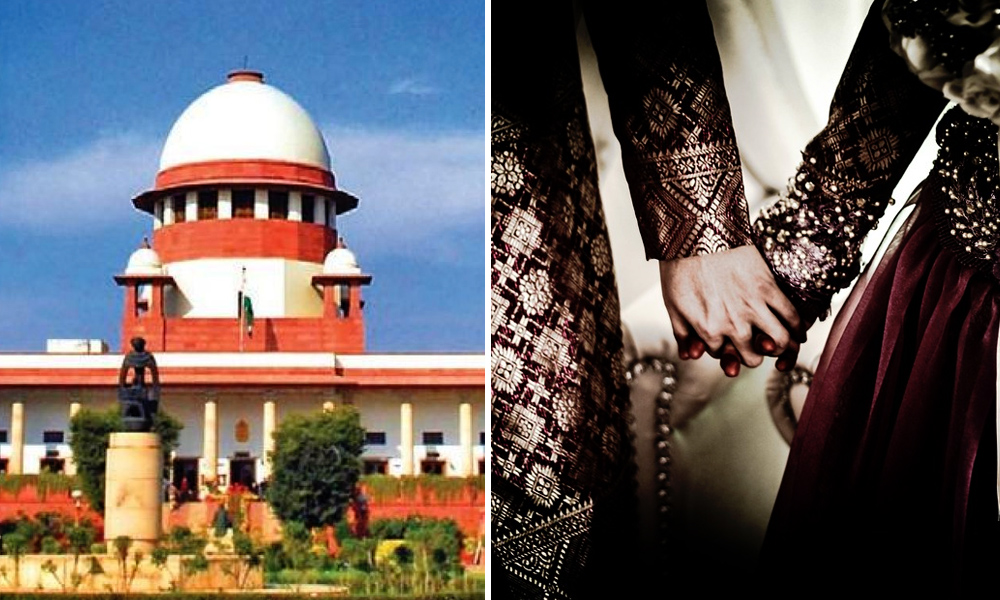
Image Credits: Pixabay
With Inter-Caste Marriages, Younger Generation Showing Way Forward To Reduce Caste, Community Tensions: SC
Delhi, 13 Feb 2021 10:19 AM GMT
Editor : Prateek Gautam |
A free soul who believes that journalism, apart from politics, should stand for social cause and the environment.
Justice Kaul quoted BR Ambedkar's Annihilation of Caste, in which he said, "I am convinced that the real remedy is inter-caste marriage. The fusion of blood can alone create the feeling of being kith and kin, and unless this feeling of kinship, of being kindred, becomes paramount, the separatist feeling—the feeling of being aliens—created by caste will not vanish."
The Supreme Court has said that younger boys and girls were showing the way forward to reduce caste and community tensions in India by tying knots in inter-caste marriages.
A bench of justices Sanjay Kishan Kaul and Hrishikesh Roy said: "Educated youngsters are choosing the life partners of their choices which, in turn is a departure from earlier societal norms where caste and community play a major role. Possibly this is the way forward where caste and community tensions will reduce by these inter-caste marriages."
Justice Kaul quoted BR Ambedkar's Annihilation of Caste, in which he said, "I am convinced that the real remedy is inter-caste marriage. The fusion of blood can alone create the feeling of being kith and kin, and unless this feeling of kinship, of being kindred, becomes paramount, the separatist feeling—the feeling of being aliens—created by caste will not vanish."
'Younger generations who choose to marry the partner of their choice are facing threats from their elders. And the courts are coming to help these youngsters,' Justice Kaul said.
As reported by the news agency PTI, the judgement came after the top court dismissed the FIR filed by the family of a girl, who had married the boy of her choice against the family's wish at Belgavai district of Karnataka. The boy is an MTech from NIT, assistant professor at Jain College of Engineering, Belgavai, and his wife is an MA, BEd.
Looking at the past judgements of similar cases, the court observed, "The consent of the family or community or clan is not necessary once the two adult individuals agree to enter into a wedlock and that their consent has to be piously given primacy."
The bench referred to the Hadiya case verdict (2018) in which privacy was declared as a fundamental right under Article 21 of the Indian Constitution.
"Intimacies of marriage lie within a core zone of privacy," Justice Kaul said the core of the Hadiya case judgment.
The top court added, "The choice of an individual is an inextricable part of dignity, for dignity cannot be thought of where there is erosion of choice. Such a right or choice is not expected to succumb to the concept of 'class honour' or 'group thinking'."
The court dismissed the FIR against the couple and directed the police authorities to not only counsel the Investigating Officers (IOs) but construct a training programme to understand such cases and how to handle these cases for the profit of the police personnel.
"We expect the police authorities to take action on this behalf in the next eight weeks to lay down some guidelines and training programmes on how to handle such socially sensitive cases," the Supreme Court ordered.
Earlier, on the basis of a complaint filed by the family of the girl, the Investigating Officer (IO) forced her to come to the police station, scared her of the possibility of an untrue case being registered by her parents that may lead to the arrest of the boy.
 All section
All section














